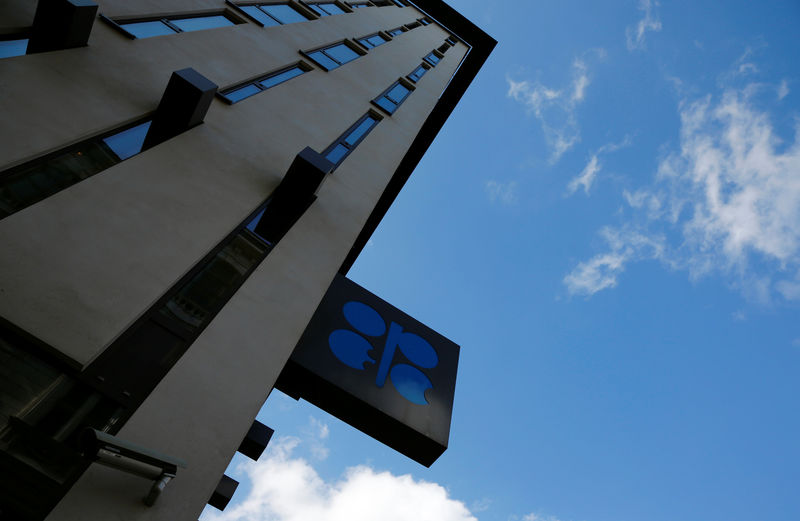Investing.com - Oil prices extended early gains on Wednesday, boosted by hopes for deeper output cuts by the Organization of the Petroleum Exporting Countries and allies later this week and after industry data showing that crude inventories fell more than expected.
Global benchmark Brent crude was up $1.22, or 2%, at $62.02 a barrel by 07:49 AM ET (12:49 GMT).
Crude oil WTI futures were up by 99 cents, or 1.8%, at $57.09.
OPEC and its allies, including Russia - a group known as OPEC+ - should extend production curbs this week, when they meet in Vienna, according to Iraq, the group's second-biggest producer (and also the member which has the worst record of compliance with the existing deal).
There is still some skepticism in the market over whether OPEC will cut output further, although it is accepted that the group is keen to support prices, with many analysts expecting an extension of existing cuts.
"Amid (the) trade war uncertainty, OPEC will be even more determined to maintain a floor on oil prices and will work to deliver precisely that outcome," said Stephen Innes, chief Asia market strategist at AxiTrader.
OPEC members meet on Thursday and then on Friday the OPEC+ group meets.
Oil prices received an additional boost after industry group American Petroleum Institute reported late Tuesday that crude oil inventories in the U.S. fell by more than expected last week. Stockpiles fell by 3.7 million barrels, more than double expectations of a decline of 1.7 million barrels.
Energy traders will be looking for confirmation of the crude draw when official figures come out from the U.S. Department of Energy's Energy Information Administration later in the trading day.
Markets were also watching trade developments following a report that the U.S. and China were moving closer to signing a 'phase-one' trade deal, a day after comments from President Donald Trump and Commerce Secretary Wilbur Ross dampened hopes of a possible near-term agreement.
Trump said on Tuesday an agreement to end the trade dispute may have to be delayed until after the American presidential election in November 2020.
The trade conflict between the world's two biggest economies has acted as a drag on the global economy and held back oil demand growth.
--Reuters contributed to this report
